TBA
What are the AA tunes? Our rabbis hear this question yearly as the journey toward the High Holidays begins. The AA tunes are melodies that have accompanied us through countless High Holidays throughout our youth and as we grew with the congregation. Cantor after cantor, choir after choir, some melodies have followed us, embraced us, and given us a sense of the holiness of the AA prayer experience. But what are they? We embarked on a mission to “find” the AA tunes, with our community’s help. Check out the journey!









Our Meshorerim (Hebrew for “spiritual singers”) group enhances prayer through music and song. The group is open to anyone regardless of musical background, Hebrew ability, or rehearsal attendance. Even if you’ve never attended a practice before, you can join our Meshorerim anytime. All we ask is that you sit up front during the Holidays in the designated “Meshorerim” section and sing along when you can! See the full schedule of gatherings on the AA Tunes Linktree.
The Children’s Choir, introduced for the first time during the 5784 High Holiday services, will sing again this year! The Children’s Choir currently includes young singers ages 5–15 and rehearses on Sundays during our Kesher Jewish School program and Saturdays after Rebbe’s Tish.
They say listening to a band’s album before attending their concert can help people enjoy the show. The same is true of spiritual preparation for the High Holiday services. Familiarizing yourself with the audio tracks of the AA Tunes will lead to a more meaningful High Holiday experience! While we may not have an AA Tunes album (at least not yet), we offer sheet music and audio files for some of our selections. You can find an index with links here.
Ahavath Achim has a rich musical history of over a century, from commissioned choral works to rock band tributes. In addition to the AA Tunes Campaign playlist, please enjoy inspirational musical kavanot (Hebrew for “intentions” or “sincere feelings, directions of the heart”) and some of our favorite musical memories and stories about our beloved “AA Tunes” and other resources.
Articles:
Videos:
Kol Nidre—Friday, October 11 | ||
5–5:30 p.m. | Family Kol Nidre Service (up to 10 years old) | In-Person: Tent |
5:30 p.m. | Vegan Kapparot | In-Person: Breezeway |
6–6:15 p.m. | Mincha | In-Person: Sanctuary |
6:15–7:00 p.m. | Kol Nidre Service | |
7–9:00 p.m. | Ma’ariv Service | |
Yom Kippur—Saturday, October 12 | ||
7:45–10:00 a.m. | Childcare (6 months–6th grade) | Check-In at Ahava |
8:00 a.m.–2:15 p.m. | Sanctuary and Yizkor Services | In-Person: Sanctuary |
10:00 a.m.–2:15 p.m. | Child/Teen Programming (6 months–12th grade) | Check-In at Ahava |
10:15–10:50 a.m. 10:15–10:50 a.m. 10:15–10:50 a.m. 10:55–11:30 a.m. 10:55–11:30 a.m. 10:55–11:30 a.m. | Family Services: Pre-K–2nd Grade: Family Service 3rd–7th Grade: Audience Performance 8th–12th Grade: Speaker and Drum Circle Pre-K–2nd Grade: Audience Performance 3rd–7th Grade: Family Service 8th–12th Grade: Speaker and Drum Circle | In-Person: Tent In-Person: Paradies Hall In-Person: Library In-Person: Paradies Hall In-Person: Tent In-Person: Library |
10–11:00 a.m. | Torah Study (Led by Dr. Douglas Ander) | In-Person: Ellman Chapel |
2–3:00 p.m. | Beit Midrash Study Hall: (Re)Engaging Differing Faith and Ethnic Communities After 10/7 Join Anat Sultan-Dadon (the Consul General of Israel to the Southeast), Victoria Raggs (Executive Director, AJOCC Atlanta Jews of Color Council), and Samuel Halpern (Senior Associate, Advocacy and Programming, AJC Atlanta/Southeast American Jewish Committee) for an important conversation moderated by Judy Marx (Operations Manager, Jewish Women’s Fund of Atlanta and Consultant to Interfaith Organizations), exploring the challenges that Jewish communities have had engaging with the non-Jewish world since October 7, how we might reengage and the new opportunities that have emerged. | In-Person: Sanctuary |
3–6:00 p.m. | Yom Kippur Chant and Drum Circle Join us for our annual tradition of spending the last few hours before the afternoon service of Yom Kippur together singing, chanting, drumming, and meditating to original and familiar High Holiday melodies. Come and go; bring your hand drum if you’d like to play along; feel free to bring a yoga mat, cushion, or blanket to experience this special time. Led by Rabbi Michael Rothbaum, Bonnie and Michael Levine, and friends. | In-Person: Paradies Hall |
5:15 p.m. | Mincha | In-Person: Sanctuary |
6:15 p.m. | Neilah Service | |
7:32 p.m. | Ma’ariv/Havdallah/Final Shofar Blast Service | |
7:45 p.m. | Break Fast | Gold Doors and Breezeway |
Visit our events calendar for the Sukkot, Shemini Atzeret, and Simchat Torah schedules! | ||

Congregation Bet Haverim is a Reconstructionist Jewish community in Atlanta. Our mission, in a nutshell, is to provide contemporary Jewish spiritual, educational, cultural, and social experiences in which an individual can integrate practice of Judaism with other aspects of their life, including social consciousness, intellectual curiosity, sexual orientation, and familial bonds. We serve and support the lesbian, gay, and transgender communities and promote the Reconstructionist concept of Judaism as an evolving religious civilization.

Ma’alot is an inclusive spiritual community that transforms lives through nature, music, and Jewish wisdom. Through immersive gatherings, we experiment, we remember, and we reimagine powerful Jewish practices that have transformed communities over the centuries. We take creative approaches to building holistic Jewish lives and welcome you just as you are.

18Doors is dedicated to empowering people in interfaith relationships to engage in Jewish life and make Jewish choices. We encourage Jewish communities to welcome these families and provide educational content, programs, and resources to support them in their Jewish journeys.

Music in Common curates experiences for people across social divides to discover common ground through facilitated conversation and music. Our nonprofit organization’s mission is to strengthen, empower, and connect communities through the universal language of music.
At our core, we hold high two foundational principles: it is hard to hate up close, and music can change the world. Our proven person-to-person methodology is informed by evidence-based social psychology and education models that help communities work through conflict. Gordon Allport’s Intergroup Contact Theory, Elliot Aronson’s Jigsaw Classroom, and 21st Century Learning’s Four C’s (communication, collaboration, creativity, critical thinking) are the cornerstones of our unique approach.
Since 2005, our programs and projects have directly served more than 10,000 people in over 400 communities worldwide, bringing together face-to-face Black and White Americans, Israelis and Palestinians, refugee, immigrant, and American-born youth, and Jews, Christians, and Muslims, among many others. 90% of MIC program participants surveyed report new learning about different faiths and cultures and resolve to reject stereotyping and increase respect for others moving forward.

Lili Baxter, a writer and teacher, was born in a DP camp in Sweden and grew up in Paris and New York. Having witnessed the familial and social ravages of hatred and war, she has devoted her life to the study and practice of nonviolence. Lili was hired by Coretta Scott King as the King Center’s director of nonviolence education and training and served for two decades on the U.S. and international boards of the Fellowship of Reconciliation, the world’s oldest interfaith peace organization. She directed the Weinberg Center for Holocaust Education at the Breman Museum and, upon her retirement, was invited to return to The King Center as NV365 Senior Educator. Lili holds a PhD from Emory University in Women’s Studies and Human Development.

Jordan Forman has been the Ba’al Korei at AA since 1998 and has been the Ritual Coordinator and one of our Shlichei Tzibbur since 2010. In his role as Ritual Coordinator, he has been the “closer” for our B’nai Mitzvah and maker of MP3s for those looking to assist with T-ah, Haftara, and tefillot. In his “spare time”, Jordan is a Partner at the law firm of Fox Rothschild LLP. Jordan has been married to native AA member Lori Tillem for nine years. His son Joshua is going into his third year at Georgia Tech, and he also has two stepchildren, Maxwell and Isabelle.

Audrey Galex is the author of the children’s picture book Turtle Rocks and the creator of The Abandoned Mattress Photojournalism Project. She serves as Community Engagement Director for AIB Network (Atlanta Interfaith Broadcasters.) Audrey is on the Jewish Community Relations Council of Atlanta and Essential Theatre boards. She enjoys making a fool of herself on the dance floor, telling, listening to, and sharing stories and folktales, playing miniature golf poorly, drinking strong coffee, pulling weeds in her vegetable and herb garden, doing Duolingo despite the lack of mastery in any language other than English, and schmoozing with friends.

Gayanne Geurin currently offers vocal coaching and healing work in both individual and retreat settings. She served as music director at CBH for 18 years. Her experiences as a spiritual leader, music director, singer, and psychotherapist, along with her skills in vocal function and improvisational exploration, offer a unique and diverse toolkit for guiding folks in their journey with their voice. She came to claim her own singing voice through a long stop-and-start journey mixed with fear, spiritual cultivation, and expansive possibility. You can hear her on her album on Bandcamp: by the god tree and recordings by Congregation Bet Haverim on Spotify. What calls and inspires her now is how each of us develops a deeper relationship with the natural world, Earth. She can be reached at gayannegeurin@gmail.com.
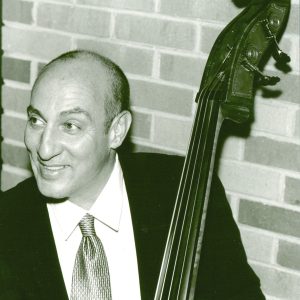
Scott Glazer is a renowned musician based in Atlanta, and he is celebrated for his versatile talents as a bassist and vocalist. With several decades of career, Scott has become a staple in the Atlanta music scene, known for his dynamic performances and deep-rooted passion for music.

Rebekka Goldsmith, CBH Music Director, believes in the collective voice’s sacred and liberatory potential and regularly bears witness to the transformation and healing that can happen when people sing together. Trained as a singer, group facilitator, professional coach, and ritual leader, Rebekka has spent over 17 years guiding individuals and groups in explorations of voice, creativity, spirituality, and social justice. She uses voice as a physical, emotional, and spiritual practice for activating personal development and supporting deep group connection. She collaborates with many of today’s Jewish music artists. She has recorded an album called Seeding the Tree, exploring themes of nature, mysticism, ancestry, and the feminine in Judaism.

Lyra Hudson (she/her) is proud to have the opportunity to lend her voice and musical skills to the CBH community. A 27-year-old baritone from Atlanta, Georgia, she graduated from Yale in 2019 with a music degree and a background encompassing singing, guitar, piano, and composition (orchestral and digital). She is incredibly excited to be a new member of CBH and wants to extend her deepest gratitude to every person in the community.
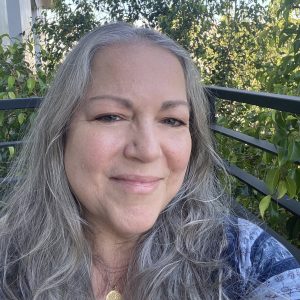
Rebecca Leary Safon, a member and lay leader at Bet Haverim, is a Certified Yoga Therapist (C-IAYT) offering Therapeutic Yoga + Meditation specializing in Oncology Yoga for Cancer, Meditation, Gentle Yoga, and Yoga + Meditation through a Jewish lens. Her classes are available virtually, on my YouTube channel, and in studios, schools, and centers around the Atlanta metro area. Through Mother-to-Mother, she offers yoga for women throughout their lifecycles, including prenatal and postpartum, pelvic floor training, yoga for seniors, and chair yoga.
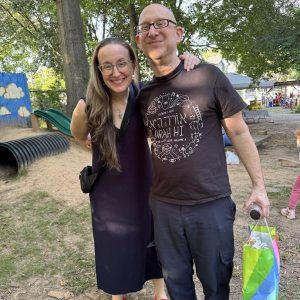
Bonnie and Michael form a Jewish music duo known as “sunmoonpie,” specializing in Jewish liturgical music and creative musical prayer experiences. Recently, they worked on Eliana Light’s album Ora Hi and Rabbi Sam Blustin’s album as part of the Sonia Project in memory of Sonia Fishkin z” l. Bonnie Levine serves in ritual and musical roles at Ahavath Achim Synagogue and Congregation Bet Haverim and is a practicing employment attorney. Michael is a professional musician, music educator, music producer, and audio engineer. He performs and leads musical experiences at Ahavath Achim and Bet Haverim, frequently with his wife Bonnie and their two children. You may know him as “Mr. Michael,” cofounder of The Learning Groove and music producer for the first four “Pete the Cat” books authored by Eric Litwin. Michael currently teaches music at The Weber School. Bonnie and Michael have two children, Eden (age 10) and Emet (age 8).
Dr. Linda Lippitt is a dedicated educator, researcher, and physician with a profound commitment to the advancement of medical science and education. A member of Ahavath Achim synagogue, she regularly chants Torah and Haftorah and teaches about Jewish wisdom and the ancient Jewish mystical tradition of Kabbalah.
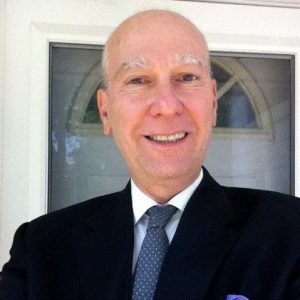
Rabbi Chaim Stephen Listfield is a proud member of Ahavath Achim Synagogue. A magna cum laude graduate of Rutgers University, he was ordained at the Jewish Theological Seminary in 1974, at which he delivered the valedictory address. Rabbi Listfield led Conservative congregations for 40 years. Now semi-retired, he is the part-time rabbi of Etz Chayim Synagogue in Huntsville, AL.
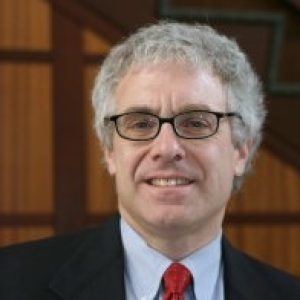
Michael Miller is mostly retired from careers as a consultant and business school faculty (most recently Goizueta, where he still teaches a summer course—hence the “mostly”). His children are grown and out of the house and he and his wife live in the Midtown Garden District after relocating from Boston. At AA, he cheerleads for, coordinates, and occasionally leads Shabbat morning Torah Study. He would love to have any or all of you join us on Shabbat mornings at 10:30 a.m. in the Cavalier Room (or via Zoom) for Torah Study.
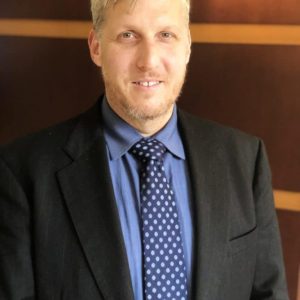
Rabbi Laurence Rosenthal grew up in Los Angeles, graduating from the University of Southern California in Los Angeles, eventually earning a Master of Arts degree in Hebrew Letters and Rabbinic Ordination from the Ziegler School of Rabbinic Studies in May 2008. Laurence served as the president of the Atlanta Rabbinical Association (2019–2021) and is currently Board Chair for Georgia Interfaith Power and Light, inspiring faith-based organizations to take up the cause of environmental stewardship and justice. He continues to hone his skills as a musician, focusing lately on jazz guitar. He has worked hard to develop a yoga practice for health and mindfulness and is currently trying jogging.

Rabbi Michael Rothbaum is Bet Haverim’s senior rabbi. Ordained at the pluralistic Academy of Jewish Religion in New York (AJR-NY) in 2006, he graduated from the New College of Florida in 1997 with a BA in Public Policy/Economics. Rabbi Mike was raised in Rockland County, New York, just north of New York City. As a teenager, Rabbi Mike became involved in the local NAACP and helped start his high school’s first Amnesty International chapter. In retrospect, he has identified the Jewish imperative of r’difat Tzedek—the command to pursue justice—as the force that solidified his love of Judaism and his passion for becoming a rabbi. Rabbi Mike lives in the Summerhill section of Atlanta with his husband, internationally acclaimed Yiddish vocalist Anthony Mordechai Tvzi Russell, who kindly tolerates his passion for fair-trade coffee, Bob Dylan, and manual transmission.
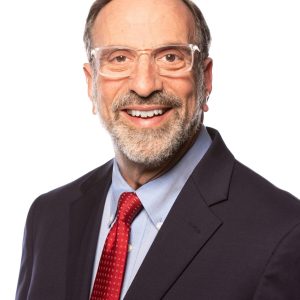
Rabbi Emeritus Rabbi Neil Sandler served as Senior Rabbi of Ahavath Achim Synagogue from 2004–2019. He remained a member of the congregation’s rabbinic staff through June 2021. Upon retirement, Rabbi Sandler was given the title of Rabbi Emeritus. Today, in a period of rabbinic transition, he continues to serve the congregation in several ways. Neil is a graduate of the University of Minnesota. He received a master’s degree and Rabbinic Ordination from the Jewish Theological Seminary. Upon ordination, Neil completed a Master of Science degree in Social Work at Columbia University. In retirement, Neil regularly participates in tai chi and dabbles in “diamond art.” Rabbi Sandler’s wife, Susan, is a longtime, well-respected social worker with Weinstein Hospice. Susan and Neil are the parents of three children: Ariel (Jamie Freedman), Aliza (Matt Jay), and Joshua (Rachel Diamond). The Sandlers have been blessed with three grandchildren: Remi, Avery, and Bennett.
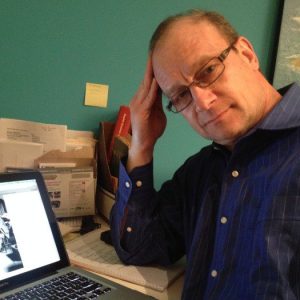
Dave Schechter has been a freelance journalist for the past decade, writing primarily for Jewish publications, including a regular column and in-depth articles for the Atlanta Jewish Times. In this capacity, he has been honored by the American Jewish Press Association. Before writing freelance, he worked for CNN in Israel for two years before 26 years on the national desk. He is the author of a soon-to-be (self-published) work of historical fiction about his Communist great-aunt.

Rabbi Ariel Root Wolpe is a mother, musician, and spiritual educator. Originally from Philadelphia, Ariel studied religion and music as an undergraduate at Emory University and was ordained at Ziegler School of Rabbinic Studies, where she focused on Hasidic commentaries and feminist interpretations of Jewish history and ritual. After ordination, Ariel studied Jewish music as a Rising Song Resident in Philadelphia. She founded Ma’alot in 2021 and has been serving as Rabbi and Executive Director since then. To learn more about Ariel, visit her website or read her vision for the Jewish community and spiritual life.
Time | Paradies Hall | Garden | Ellman Chapel This is the Zoom link for all sessions held in Ellman Chapel | Cavalier Room This is the Zoom link for all sessions held in Cavalier Room | Koplin-Borochoff Library This is the Zoom link for all sessions held in Koplin-Borochoff Library | Basement | Cohn Room |
7:00 p.m. | Plenary Session Join us in kicking off our Tikkun Leil Shavuot program for a powerful opening program by Music in Common! The program will feature a documentary screening, dialogue, and musical performance focused on Music in Common’s Israel-Palestine and interfaith work in the U.S. and Middle East. (7–9:00 p.m.) | Child Play and Sleep Space | |||||
9:00 p.m. | Ma’ariv Service | Iliane (Lili) Kshensky Baxter Holocaust/Nonviolence Training/Education Nonviolence is a love-centered way of thinking, speaking, acting and engaging that leads to personal, cultural and societal transformation. It’s both a way of life and a method for social change. This session will serve as a short introduction to this timely subject with emphasis on the teachings of Martin Luther King, Jr. (9–9:50 p.m.) | |||||
9:30 p.m. | Rabbi Ariel Root Wolpe When You Study Talmud, is it a Song? Deep in the pages of Talmud, we find an ancient adage: “”When you study Talmud, is it a song?”” Are the pages like lyrics that we do not quite understand? Do the words move us, or invite us to join in? Together, we will read sugyot (passages) that explore these questions to deepen our relationship to this foundational work of story-telling, legal debate, and perhaps, of song. (9:30–10:00 a.m.) | Rebekka Goldsmith and Gayanne Geurin (In-Person Only) The Secret of Many Voices—B’sod Kolot Congregation Bet Haverim’s current and former Music Directors Rebekka Goldsmith and Gayanne Geurin are teaming up to facilitate an exploratory music session as a way in to unravel some of the mystery of receiving and revelation that are Shavuot’s core mystical elements.Rebekka and Gayanne will work with a structure called, “Circle Singing” to guide participants to create a singing and sound experience that reveals itself moment to moment. You are welcome to sing with us or lay down and listen. All Voices Welcome. No prior experience necessary. (9:30–11:00 a.m.) | |||||
10:00 p.m. | Chevruta (Partner)/Self-Paced Study Space Check out independent, partner, and group study materials along with coffee and snacks in Paradies Hall. | Rabbi Chaim Listfield God’s Rain and God’s Reign Deuteronomy 32 is written in symbolic poetry and it needs interpretation. As an example, at the start of the chapter we read: “”May my discourse come down as the rain, My speech distill as the dew, Like showers on young growth, Like droplets on the grass.”” Rabbi Listfield will explain what the rain means in that verse, and he’ll explain other metaphors in that poetic chapter of Scripture. His goal is to show us how it all fits with the reign of the Almighty. If you like Biblical poetry you might want to come learn why God is compared to an eagle and how we Jews are being protected in our cozy little nest. (10–10:50 p.m.) | |||||
10:30 p.m. | Lyra Hudson Sight Singing In an hour, learn how to look at a line of music and sing it through without accompaniment! (10:45–11:45 p.m.) Audrey Galex Turtle Rocks What Jewish values are embedded in a children’s book about turtles trying to get to a lake to sun themselves on a log? Join author Audrey Galex, whose book Turtle Rocks also invites you to explore your life’s journey. (11–11:50 p.m.) | ||||||
11:00 p.m. | Rabbi Neil Sandler Kol Ha’olam Kulo: Teachings from Rebbe Nachman of Breslov Kol HaOlam Kulo Gesher Tzar Me’od—You’ve probably sung the song. Now, come learn about this statement that Rabbi Nachman coined many years ago. What does it say about Reb Nachman’s God and his worldview? Most importantly, as we celebrate this Torah – centered holiday of Shavuot, does this statement provide us with direction? Come discuss and learn. (11–11:50 p.m.) | ||||||
12:00 a.m. | Midnight Kiddush Levana Music with Bonnie and Michael Levine At midnight, we will come together in the garden courtyard to participate in a brief musical Kiddush Levana service. “Kiddush Levana” means “sanctifying the moon” and is a traditional ritual including blessings, greetings, and movement, performed monthly during the week following Rosh Chodesh (the new moon/new month in the Jewish calendar). Bonnie and Michael Levine will lead this musical experience, accompanied by Randy Crohn on percussion, followed by casual singing and dancing in the moonlight. (12–1:00 a.m.) | ||||||
12:30 a.m. | Cheesecake Eating cheesecake is a highlight of Shavuot tradition—we’ll bring it out into Paradies after we celebrate the moon. (12:30–1:00 a.m.) | ||||||
1:00 a.m. | Chevruta (Partner)/Self-Paced Study Space Check out independent, partner, and group study materials along with coffee and snacks in Paradies Hall. | Scott Glazer Abraham Idelsohn’s Musicological Research into Ashkenazic Music” An Exploration including Musical Examples Abraham Zvi Idelsohn (1882–1938) remains a premier musicologist of Jewish music and liturgical practice. We’ll take a look at Idelsohn’s history, early influences, his work and the importance of it in Jewish musicology. (1–1:50 a.m.) | Dave Schechter What Makes the News Jewish? What role does Jewish news media play relative to secular? What happens when the news about Jews is not good? What responsibility does Jewish news media have to the communities they cover? (1–1:50 a.m.) | Sleep Space | |||
2:00 a.m. | Jordan Forman Name that Tune: Nusach and Trope Why does Torah reading sound the way it does? What about Haftorah? and of cource, our various services throught the year. Come learn the meaning of trope and nusach, the reasoning behind the various modes and who who knows, maybe we’ll even sing a little bit. (2–2:50 a.m.) | Michael Miller Song of the Ark During the Torah service, as we take out, and then return, the Sefer Torah, we read two verses from Numbers, referred to by some as the Song of the Ark. Our sages also argue that these two verses make up their own book of the Torah. We will learn about and discuss all of this with a musical interlude of the singing of the Song of the Ark (on YouTube, not to worry, no singing required of participants). (2–2:50 a.m.) | |||||
3:00 a.m. | Rabbi Laurence Rosenthal Traditional Shabbat Song with Serious Mystical Underpinnings A staple of the regular Shabbat Morning prayer service, El Adon presents an incredible Mystical image of God which most people aren’t contemplating as they singing this by rote. Join Rabbi Rosenthal for a deep dive into the spiritually rich description and illusions that this prayer evokes and how it is tied to many other sacred texts from our tradition. (3–3:50 a.m.) | ||||||
4:00 a.m. | Rabbi Mike Rothbaum Sinai on Broadway: Sondheim and More Explore the connections between the themes of Jewish tradition and the works of Stephen Sondheim and other Broadway greats. Rabbi Rothbaum will lead an engaging session that brings together the magic of Broadway with the depth of Jewish spirituality and storytelling. (4–4:50 a.m.) | ||||||
5:00 a.m. | |||||||
5:30 a.m. | Sunrise Shacharit Service Zoom Sing Hallel (with the birds as the sun rises and the birds sing). (5:30–9:00 a.m.) | ||||||
6:00 a.m. | |||||||
8:00 a.m. | Morning Stretching, Yoga, and Mindfulness (In-Person Only) Join CBH’s Rebecca Leary Safon for 30 minutes of stretching, yoga, and mindfulness. (8:10–8:40 a.m.) Mindful Moments Following our yoga session, we will all join together as part of CBH’s daily virtual minyan for 30 minutes of mindfulness, chant, and prayer. (8:45–9:15 a.m.) | ||||||
8:30 a.m. | Breakfast | ||||||
9:00 a.m. | Linda Lippitt The Story of Zipporah Over breakfast, join Dr. Linda Lippitt in a fascinating exploration into the life of Moshe’s wife Zipporah. (9–9:50 a.m.) | ||||||
9:30 a.m. | |||||||
10:00 a.m. | |||||||
Selichot—Saturday, September 9 | ||
7:15 p.m | Mincha/Ma’ariv/Havdallah Service | In-Person: Sanctuary Virtual: Zoom Join Zoom |
8:30–10 p.m. | In-Person: Shearith Israel | |
Sunday, September 10 | ||
10:00 a.m. at Greenwood Cemetery 1:30 p.m. at Arlington Memorial Park | In-Person: Greenwood Cemetery and Arlington Memorial Park | |
2–4:00 p.m. | Reverse Tashlich | In-Person: Peachtree Creek Greenway |
Erev Rosh Hashanah—Friday, September 15 | ||
7:15–8:45 a.m. | Morning Minyan | Virtual (Zoom) Join Zoom |
6:00 p.m. | Mincha/Ma’ariv Service | In-Person: Sanctuary Virtual: Zoom and YouTube |
7:26 p.m. | Candle Lighting | |
Rosh Hashanah Day 1—Saturday, September 16 | ||
8–9:30 a.m. | Coffee and Breakfast Oneg | In-Person: Breezeway |
8:00 a.m.–12:30 p.m. | Rosh Hashanah Morning Service | In-Person: Sanctuary Virtual: Zoom and YouTube |
9:30–10:30 a.m. | Family Service | In-Person: Outdoor Tent |
9:30–10:30 a.m. | Torah Study Led by Michael Miller “Finding our Personal Prayer in the High Holiday Liturgy”: Prayer is a central element of the days leading up to Rosh Hashanah, and then especially during the Yamim Noraim. We are all familiar with the prayers in our liturgy, but what about personal prayers, prayers for which we do not have a template or formula? The Torah and Haftarah readings for today provide three different models of personal prayer which we will examine, discuss, and contrast. | In-Person: Ellman Chapel Virtual: Zoom |
10:00 a.m.–2:00 p.m. | Apple Tasting We will hold an Apple Tasting where there will be multiple tables, each labeled with two varieties of apples. Adults and children can vote for their favorites in each category! | In-Person: Lobby |
10:30 a.m.–End of RH Service | Children’s Programming | In-Person: Check-In at Cavalier Room |
12:30–1:15 p.m. | Oneg and Light Kiddush | In-Person: Srochi Auditorium |
1:15–1:45 p.m. | Mincha Service | In-Person: Sanctuary Virtual: Zoom and YouTube |
7:45–8:15 p.m. | Ma’ariv Service | Virtual: Zoom |
8:08 p.m. | Candle Lighting | |
Rosh Hashanah Day 2—Sunday, September 17 | ||
8–9:30 a.m. | Coffee and Breakfast Oneg | In-Person: Breezeway |
8:00 a.m.–12:30 p.m. | Rosh Hashanah Morning Service | In-Person: Sanctuary Virtual: Zoom and YouTube |
9:30–10:30 a.m. | Torah Study Led by Rabbi Laurence Rosenthal “Crowning God: An Exploration into Divine Coronation:” An important theme of the High Holidays is the crowning of God as sovereign, where God takes a seat on the divine throne. Join Rabbi Rosenthal on the second day of Rosh Hashanah as we will explore one of the reoccurring prayers of this High holiday season – L’El Orekh Din | Hybrid: Paradies Hall and Virtual (Zoom) |
10:15 a.m.–End of RH Service | Children’s Programming | In-Person: Check-In at Cavalier Room |
12:30 p.m. | Tashlich | In-Person: Meet at the Outdoor Tent where we will walk to the corner of Peachtree Battle Ave NW and Woodward Way |
7:30 p.m. | Mincha Ma’ariv Service | Virtual: Zoom |
8:07 p.m. | Havdallah | |
Kol Nidre—Sunday, September 24 | ||
5–5:30 pm | Family Kol Nidre Service | In-Person: Breezeway Virtual: Zoom |
5:30 p.m. | Vegan Kapparot Yom Kippur challenges us to cleanse our souls from missteps over the past year. Our tradition seeks to imbue the ethereal nature of our good and evil, right a wrong into an object that can be consumed, cast out, or flung away. Kapparot seeks to take that which is weighing us down and swing it over our heads, casting it far away from us. We have reclaimed this medieval ritual for our modern spiritual life, replacing the killing of a chicken with the righteous act of tzedakah. Join Rabbi Rosenthal in the garden as we recite our prayers, imbue a bag of money with our regrets for the past year, and swing it over our heads, thereby turning our shortcomings into acts of loving kindness to help others. The Joseph family chicken will be on site… for petting only. | In-Person: Garden |
6:10 p.m. | Mincha Service | In-Person: Sanctuary Virtual: Zoom and YouTube |
6:30 p.m. | Kol Nidre Service | |
7:00 p.m. | Ma’ariv Service | |
7:13 p.m. | Candle Lighting | |
Yom Kippur—Monday, September 25 | ||
8:00 a.m.–1:00 p.m. | Yom Kippur Morning Service | In-Person: Sanctuary Virtual: Zoom and YouTube |
9:30–10:30 a.m. | Yom Kippur Family Service | In-Person: Outdoor Tent |
9:30–10:30 a.m. | Torah Study Led by Judy Marx “G’mar Hatimah Tova—Getting the Seal of Approval”: Getting sealed in the The Book of Life is one of the most powerful images of the High Holy Days. Our High Holiday Mahzor is filled with references to books we should be sealed into: Life, Redemption, Sustenance, Merit, and Forgiveness (see Avinu Malkeinu). What are we really asking for when we pray to be sealed into these “books?” Does it imply that after Yom Kippur the fate of everyone is sealed for the rest of the year? We will look at texts and liturgy to better understand this image as one of the motivators for repentance. | In-Person: Ellman Chapel Virtual: Zoom |
10:30 a.m.–1:30 p.m. | Children’s Programming | In-Person: Check-In at Cavalier Room |
1:30–3:00 p.m. | Beit Midrash (Study Hall) Led by Dr. Andy Zangwill “Yom Kippur in Hell” is the title of the last short story written by the celebrated Yiddish writer Isaac Peretz. Andrew Zangwill will read the story aloud and lead a discussion of its themes. The text will be supplied so attendees (real and virtual) can read along. | In-Person: Ellman Chapel Virtual: Zoom |
3–5:15 p.m. | Drum Circle with SunMoonPie | In-Person: Paradies Hall |
5:15 p.m. | Mincha Service | In-Person: Sanctuary Virtual: Zoom and YouTube |
6:30 p.m. | Neilah Service | |
7:41 p.m. | Ma’ariv and Final Shofar Blast | |
7:55 p.m. | Havdallah | |
Selichot – Saturday, September 17 | ||
7:15 p.m | Mincha/Ma’ariv/Havdallah Service | Hybrid: Ellman Chapel and Virtual (Zoom) |
8:10 p.m. | Selichot Service | |
Erev Rosh Hashanah – Sunday, September 25 | ||
9–10:30 a.m. | Morning Minyan | Virtual (Zoom) |
6:00 p.m. | Mincha/Ma’ariv Service | Hybrid: Srochi Auditorium and Virtual (Zoom) |
7:12 p.m. | Candle Lighting | |
Rosh Hashanah Day 1 – Monday, September 26 | ||
8–9:00 a.m. | Coffee and Schmooze Co-sponsored by Sisterhood | In-Person: Garden |
8:00 a.m.–12:30 p.m. | Rosh Hashanah Service | Hybrid: Srochi Auditorium and Virtual (Zoom and Live Stream) |
9–10:00 a.m. | Family Service | In-Person: Outdoor Tent |
9:30–10:30 a.m. | Torah Study Led by Dr. Andrew Zangwill “Happy Birthday World!”: After each Rosh Hashanah shofar blast, we chant a short poem which begins “hayom harat olam,” a phrase often translated as “today the world was born.” This session examines this (and other) translations of ”hayom harat olam” and teases out their meaning for us today. Andy Zangwill is a native of Pittsburgh and is somehow related to the British Zionist Israel Zangwill. He has taught physics at Georgia Tech since 1985 and has helped administer the AA Torah Study since 2000. | Hybrid: Cavalier Room and Virtual (Zoom) |
10:00 a.m.–End of RH Service | Children’s Programming (0–5th Grade) | In-Person: Check-In at Ahava ELC |
12:30–1:00 p.m. | Oneg and Light Kiddush | In-Person: Garden |
6–7:00 p.m. | Mincha/Ma’ariv Service | Hybrid: Srochi Auditorium and Virtual (Zoom and Live Stream) |
7:54 p.m. | Candle Lighting | |
Rosh Hashanah Day 2 – Tuesday, September 27 | ||
8–9:00 a.m. | Coffee and Schmooze | In-Person: Garden |
8:00 a.m.–12:30 p.m. | Rosh Hashanah Service | Hybrid: Srochi Auditorium and Virtual (Zoom and Live Stream) |
9:00 a.m.–End of RH Service | Children’s Programming (0–5th Grade) | In-Person: Check-In at Ahava ELC |
9:30 a.m. | Torah Study Led by Dr. Paul Feldman “From Yom Teruah to Rosh Hashanah – A Rabbinic Journey”: The torah instructs us that, on the first day of the seventh month, there should be “teruah.” From that, it becomes a New Year where, hopefully, our Father, our King, inscribes us in the book of life. Let’s explore the rabbinic mindset that defines us as Jews. Paul Feldman has attended AA’s Shabbat Torah Study religiously for over 20 years. His interests include the historical aspects of Tanakh and the intellectual history of b’nai Yisrael through the ages. | Hybrid: Paradies Hall and Virtual (Zoom) |
12:30 p.m. | Tashlich | In-Person: Outdoor Tent |
7:30 p.m. | Mincha/Ma’ariv/Havdallah Service | Hybrid: Srochi Auditorium and Virtual (Zoom and Live Stream) |
Aseret Y’mei Teshuva (Ten Days of Repentance) – Sunday, October 2 | ||
9–10:30 a.m. | Morning Minyan | Virtual (Zoom) |
11:30 a.m.–12:30 p.m. | Family Taslich and Picnic with Shofar Blowing | In-Person: Morgan Falls Overlook Park |
2–4:00 p.m. | Reverse Tashlich | In-Person: Peachtree Creek Greenway |
6–7:00 p.m. | Evening Minyan | Virtual (Zoom) |
Kol Nidre – Tuesday, October 4 | ||
5–5:30 pm | Family Service | Hybrid: Breezeway and Virtual (Zoom and Live Stream) |
5:30–6:15 p.m. | Vegan Kapparot Yom Kippur challenges us to cleanse our souls from missteps over the past year. Our tradition seeks to imbue the ethereal nature of our good and evil, right a wrong into an object that can be consumed, cast out, or flung away. Kapparot seeks to take that which is weighing us down and swing it over our heads, casting it far away from us. We have reclaimed this medieval ritual for our modern spiritual life, replacing the killing of a chicken with the righteous act of tzedakah. Join Rabbi Rosenthal in the garden as we will recite our prayers, imbue a bag of money with our regrets for the past year, and swing it over our heads, thereby turning our shortcomings into acts of loving kindness to help others. Farmer Joe and his chicken will be on site… for petting only. | In-Person: Garden |
6:10 p.m. | Mincha Service | Hybrid: Srochi Auditorium and Virtual (Zoom and Live Stream) |
6:30 p.m. | Kol Nidre Service | |
7:00 p.m. | Ma’ariv Service | |
Yom Kippur – Wednesday, October 5 | ||
8:00 a.m.–1:00 p.m. | Yom Kippur and Yizkor Services | Hybrid: Srochi Auditorium and Virtual (Zoom and Live Stream) |
9–10:00 a.m. | Family Service | In-Person: Outdoor Tent |
9:30–10:30 a.m. | Torah Study Led by Judy Marx “Everything Old is New Again”: This session explores how understanding our history through Yom Kippur’s Torah reading and liturgy lead us to repentance and forgiveness. Judy Marx is a long-time Jewish community professional. She was the Atlanta Director of the American Jewish Committee for twelve years and is currently with the Jewish Women’s Fund of Atlanta. In her free time she consults with interfaith organizations and prepares for Torah Study at AA. | Hybrid: Cavalier Room and Virtual (Zoom) |
10:00 a.m.–End of YK Service | Children’s Programming (0–5th Grade) | In-Person: Check-In at Ahava ELC |
2:30–4:00 p.m. | Beit Midrash (Study Hall) Led by Dr. Dennis Gilbride “The Golden Calf, Consuming Fire, Atonement, and Forgiveness”: This session focuses on two relatively well known, but under-studied stories in the Torah: the Golden Calf and the death of Aaron’s sons, Nadav and Avihu. By exploring midrashim and ideas that tie these two episodes together, we will provide an interesting and provocative understanding of the Jewish approach to atonement, forgiveness, and connection to G-d. Dennis Gilbride has been a professor for 32 years, first at Syracuse University and, for the last ten years, at Georgia State University in its Department of Counseling and Psychological Services. He began his career at Drake University in Des Moines Iowa where he and his family were congregants of Neil Sandler, AA’s Rabbi Emeritus. | Hybrid: Srochi Auditorium and Virtual (Zoom) |
4–6:30 p.m. | Chanting with SunMoonPie | Hybrid: Paradies Hall and Virtual (Zoom) |
5:30 p.m. | Mincha Service | Hybrid: Srochi Auditorium and Virtual (Zoom and Live Stream) |
6:30 p.m. | Neilah Service | |
7:41 p.m. | Ma’ariv/Havdallah and Final Shofar Blast | |

Many of our committees and initiatives have agreed to host and share their beautiful sukkot around Atlanta with all of us. Everybody, whether assembling a welcome kit or not, is invited to come together for the holiday of Sukkot!
If you have pledged to assemble a welcome kit, one of these sukkot parties will function as your drop-off location. Bring your kit to the sukkah, and an AARI Committee member will ensure it makes its way to the Welcome Co-Op, our partner in caring for the newly arriving refugees. Additionally, each sukkah party will have all the supplies needed to assemble a bag so more can support and share our abundance with those in need.
Below is a list of the sukkah parties going on around Atlanta. You do not need to be a part of the host’s community (i.e. involved in Kesher, Sisterhood, mAAc, etc.) to join a particular sukkah party. If you love AA Synagogue and are a part of our spiritual family, you are welcome to any party that is convenient to you. (And just think: You might meet somebody new and make a new friend.) Join a Sukkah party, enjoy snacks and camaraderie, and assemble a welcome kit for a newly arriving refugee family. We couldn’t think of a better way to celebrate the holiday of sukkot as a community!
mAAc Sukkah Party: Wednesday, October 12, 1–3 p.m., Ahavath Achim Synagogue (600 Peachtree Battle Ave, NW Atlanta GA 30327)
Kesher Sukkah Parties:
Sisterhood Sukkah Party: Thursday, October 13, 6:30 –8:30 p.m., Ahavath Achim Synagogue (600 Peachtree Battle Ave, NW Atlanta GA 30327)
Meshorerim (Spiritual Music) Sukkah Party: Saturday, October 15 7–9 p.m., Home of Bonnie and Michael Levine (460 Gift Ave SE, Atlanta, GA 30316)
Interfaith Inclusion Committee (IIC) Sukkah Party: Sunday, October 16, 1–3 p.m., Ahavath Achim Synagogue (600 Peachtree Battle Ave, NW Atlanta, GA 30327)
Inclusion and Belonging Committee Sukkah Party: Sunday, October 16, 1–4 p.m., Home of Shelly and Allan Dollar (2192 Greencliff Drive Atlanta, GA 30345)
There are many that have been forced to flee their homelands to come to a new country, fearful, and facing uncertainty. Most of us are only two or three generations distant from those refugee experiences ourselves, grateful our families survived the life-threatening turmoil in their homelands and could receive any help their new communities could offer. During the month of Elul and through the High Holidays, the AARI is launching the Elul Campaign as a way for the AA community to make an impact. As a part of this campaign, volunteers will assemble welcome kits to be given to refugee families as they arrive in Georgia (kit contents detailed below). We often have to purchase personal items for people to place in their homes, so having these kits on hand is of tremendous help and saves families money.
Volunteers can do this activity in whichever location and on whichever timeline they’d like. All items should be placed in a container (reusable shopping bags are recommended), and label each kit so we know what/who it’s for. It’s a good idea to re-enforce products with liquid contents with tape to prevent spillage.
Welcome kits need to be dropped off during the holiday of Sukkot (October 11–16). After Yom Kippur, a full list of dates, times, and locations of the many sukkot around town will be emailed to volunteers. Volunteers will choose a convenient sukkah to which to deliver the welcome kit(s). Volunteers are asked to hold on to welcome kit(s) until they can be delivered to the sukkah of their choosing. Deliveries are meant to be social events, so volunteers should plan to drop off the kit(s) and socialize a bit before leaving.
Volunteers who are unable deliver to a sukkah should email Rabbi Laurence Rosenthal (lrosenthal@aasynagogue.org) who will arrange for one of the AARI Task Force members to pick up the kit(s) from their home.